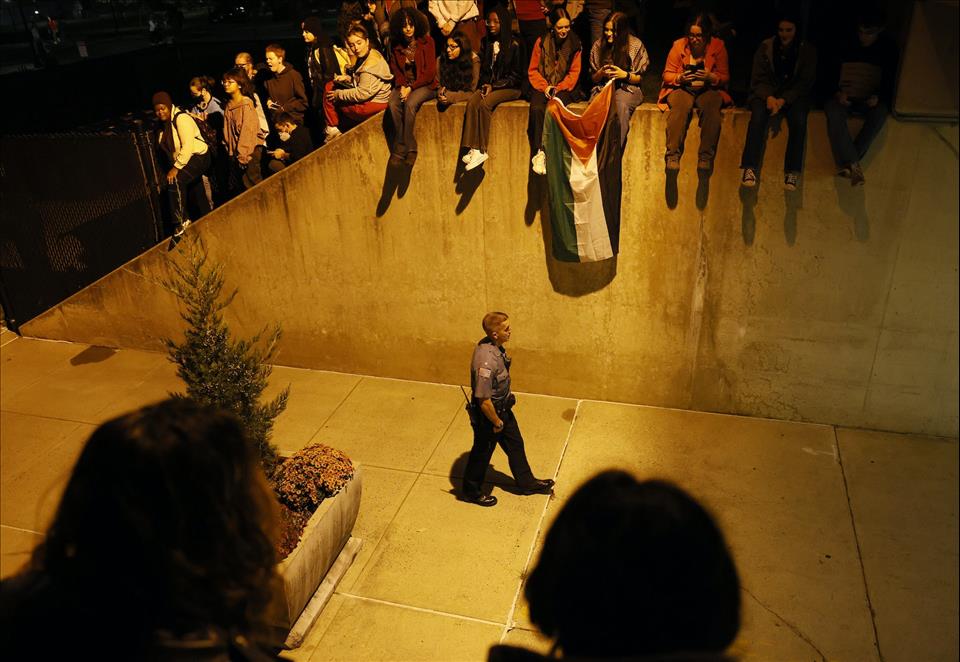
American Universities In The Spotlight Over Reaction To Israel-Gaza War Podcast
There's been political fallout too: in early December, the president of the University of Pennsylvania stood down after coming under pressure following her answers to a hearing in Congress about antisemitism on campus.
In the first of two episodes exploring how the war is affecting life at universities, The Conversation Weekly podcast hears about what's been happening at one American public college campus.
David Mednicoff says his department at the University of Massachusetts, Amherst, tends to have the students who are“the most directly involved in issues around the Middle East, from different perspectives.” Mednicoff is chair of the university's Department of Judaic and Near Eastern Studies and an associate professor of Middle Eastern studies and public policy.
Speaking to The Conversation Weekly podcast about the reaction on campus to the Israel-Gaza war, he said he's been working to find ways of bridging divides, including putting on events designed to provide background to the conflict. Mednicoff believes that students should be able to listen to perspectives that can challenge them,“sometimes even to the core of their identity”.
Mednicoff says the campus branch of Students for Justice for Palestine has been“louder than pro-Israel folks in terms of campus political discourse”. Pro-Palestinian protests, including a sit-in at a university administrative building where 57 people were arrested , have called for a ceasefire in Gaza. In a separate incident, a student was arrested and charged after allegedly attacking a Jewish student on campus.
Role of a universityUniversities have come under fire from those – both pro-Israeli and pro-Palestinian – who think their leadership should take a stronger stance during the Israel-Gaza conflict. But Mednicoff thinks it isn't the role of a university to do that.“In general, I think that it is ill advised for universities to take political positions on global issues,” he said. And because of the current climate for higher education, particularly in the US, he thinks it's also a political choice for universities to try and foster well-informed, open debate.
You can listen to the full interview with David Mednicoff on The Conversation Weekly , plus an interview with Naomi Schalit, senior editor for politics and democracy at The Conversation in the US.
This episode of The Conversation Weekly was written and produced by Gemma Ware, and Mend Mariwany, with assistance from Katie Flood. Sound design was by Eloise Stevens, and our theme music is by Neeta Sarl.
Newsclips in this episode from N B C News and CBS News .
You can find us on X, formerly known as Twitter @TC_Audio , on Instagram at theconversationdotcom or via email . You can also subscribe to The Conversation's free daily email here .
Listen to The Conversation Weekly via any of the apps listed above, download it directly via our RSS feed or find out how else to listen here .

Legal Disclaimer:
MENAFN provides the information “as is” without warranty of any kind. We do not accept any responsibility or liability for the accuracy, content, images, videos, licenses, completeness, legality, or reliability of the information contained in this article. If you have any complaints or copyright issues related to this article, kindly contact the provider above.






















Comments
No comment